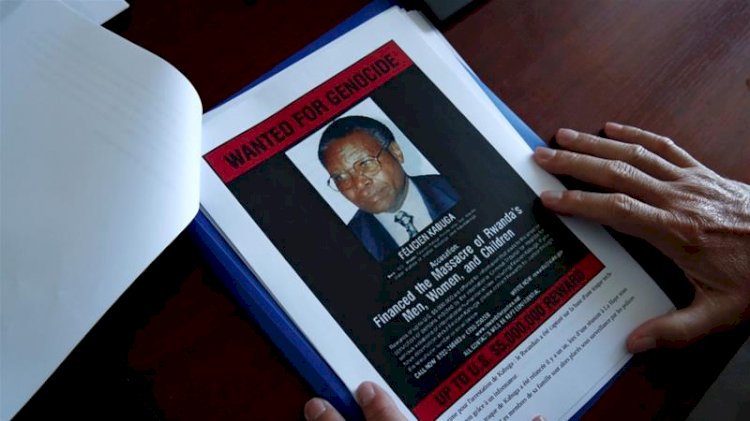French court rejects request to release Rwandan genocide suspect

A French court has rejected a request to release Rwandan genocide suspect Felicien Kabuga under court supervision. The court on Wednesday denied his lawyer's argument that Kabuga should be released on bail because of poor health, saying
continued detention ensured he would not abscond. Kabuga can appeal the decision. The genocide suspect, meanwhile, told the court the international charges against him were "lies".
Kabuga, who was arrested near Paris earlier this month after more than 20 years on the run, is accused of financing and arming the ethnic Hutu militias that slaughtered some 800,000 Tutsi and moderate Hutus in 1994.
The one-time tea and coffee tycoon was seated in a wheelchair at the front of the court, with his hands folded in his lap, wearing a blue shirt and dark blue trousers as well as a face mask.
Asked if he understood the charges made by a United Nations tribunal, Kabuga told the court through an interpreter: "All of this is lies. I have not killed any Tutsis. I was working with them."
He confirmed his identity saying he was born in 1933, rather than 1935 as stated in court documents. "It's a major arrest but of course we must respect the presumption of innocence," Etienne Nsanzimana, a Rwanda genocide survivor, said.
"He was one of the main figures of the old Rwanda and he was wanted on several charges - so it's a huge relief he has been caught." According to an indictment from the International Criminal
Tribunal for Rwanda (ICTR), Kabuga chaired the notorious Radio Television Libre des Mille Collines (RTLM) and used it to incite hatred between Hutus and Tutsis.
The indictment alleges RTLM "incited the commission of genocide through broadcasts that expressly identified persons as Tutsis, provided their locations, described them as the enemy, and called for their elimination".
Kabuga also agreed with others to create and fund a militia in the capital, Kigali, with the aim of stirring up ethnic hatred and committing genocide against Tutsis, according to the indictment.
Extradition
Should the Paris Court of Appeal approve Kabuga's extradition, it will order him to be handed over to the International Residual Mechanism for Criminal Tribunals.
The mechanism tries Rwandan cases in neighbouring Tanzania, but prosecutors are asking that Kabuga be held temporarily at The Hague, in the Netherlands, in light of the coronavirus pandemic.
Kabuga's lawyers, however, have said the suspect wishes to be tried in France where he was living for several years. "They say he is elderly, he is 84 years old, and his health is frail, and extraditing him would simply be too much for a man that age," she said.
It is likely Kabuga will first be transferred to The Hague and then to Arusha, Tanzania, for trial, Grace Farvel, a Paris-based lawyer, said. However, Farvel added: "It is still possible that the validity of the arrest warrant would be challenged, and the court would accept that argument."
The international arrest warrant for Kabuga was issued in August 1999. "I imagine one of the issues will be that the information that was gathered then was still valid," Nicola Palmer, a senior lecturer at King's College, said.
"This will be a very hard argument to sustain. Before the UN tribunal closed, it took a number of interviews to make sure it retained the initial evidence that it had gathered.
And I think this is unlikely to go forward now that trial will go before this residual mechanism, which is really about completing the work of the UN International Criminal Tribunal of Rwanda, which has been in existence since 1994."
